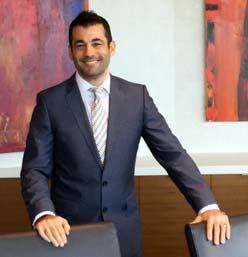
Family Business Division Support Lawyers deal with business owners’ pretax profits guideline income, valuation, and division of family business property and how the value of the business that the business owner retains interplays with the award of child support and spousal support.
Our top rated Family Business Division Support Lawyers deal with high net worth cases on a daily basis and have been involved in a number of precedent setting cases in this area. We established the key principles to be applied to cases where a family business is valued on its multiple of earnings and on how spousal and child support are calculated in these cases. Our Mandarin Chinese fluent family law team has also successfully resolved many multimillion dollar business asset division support disputes.
Today, Tal Wolf, one of our senior Family Business Division Support Lawyers explains the tricky concept of valuing a business on the income it produces while also using this income for spousal and child support purposes.
What Is Double Dipping In Business Asset Division and Calculation of Support? 604 602 9000
In this blog, our Family Business Division Support Lawyers re-examine the often mentioned, but less often well understood concept of “double-dipping”. Our firm successfully confirmed the law in this area in a case that went all the way to the Supreme Court of Canada. Previous MacLean Family Law blogs have touched on this important topic, and here we consider it further.
The double-dipping support problem arises in cases where the payor of support derives a significant part of their “guideline income” (income figured for purposes of calculating support) from a business that is divisible family property. In simple terms, the double-dip arises if the payor winds up including money in their guideline income, which in turn increases the amount of support owed, while also sharing (let’s say 50%) of that money with their spouse in the division of assets.
BC cases including our win in the SCC in Lightle V Kotar, and the case M.C.D. v. D.A.D. 2017 BCSC 1832, where one spouse was paid an equalization payment for their interest in the business rejected the idea that spousal support could not still arise from the paying business owner’s business profits. The reasoning is that unlike pension buyouts ( where double dipping is generally considered improper), involving pensions which are a “liquidating asset” a functioning business, maintains an ongoing income stream and as such there is no impermissible double dip.
Vancouver Family Business Division Support Lawyers
Our skilled Family Business Division Support Lawyers know that there may be added complications, and potentially major differences in outcome when the value of the divisible business is largely in its retained earnings, as opposed to goodwill and other assets; or, where they business will be divided in a buyout as opposed to distributing a piece of the operations to the other spouse (buyouts almost always occur when the business has been operated by only one spouse, or when a personal service business is involved such as an accountancy, dentistry or law practice).
There are further complexities when we are dealing both with retroactive support obligations, that is post-separation but before trial or settlement, as opposed to “going forward” support that will continue into the future. The point is that we need to be careful…while some lawyers might automatically jump to the payor’s defence with the “double-dip” cry as soon as both support and business division arise as issues in the same case, far fewer lawyers will appreciate the nuances of the issue, causing their recipient (of support) clients to get shorted.

Call Our Vancouver Divorce Lawyers Today About Your Family Business 604 602 9000
If you or your spouse own or operate a business, call MacLean Family Law today 1-877-602-9900. Put our expertise to work in discussing your financial picture, and the intricacies between property division and support specific to your case.
Normally, for a business owner we do what’s called a “section 18” analysis, which stems from the Federal Child Support Guidelines. In simplistic terms, this means you don’t look at what the payor took out of the company as salary or dividends; rather, you look at how much they could have have taken out, also known as the pre-tax profits of the company. When it comes to retroactive support, the main double-dip concern is that that if the payor spouse left money in the company, like a piggy bank, the recipient may already be getting half of that piggy bank in the buyout. So, for retroactive support (remember, retained earnings is past tense), it’s reasonable that guideline income might be limited to what the payor actually drew out of the company and posted to their personal tax return.
But what about going forward? The payor will claim that the value of the business (for buyout purposes) is partly based on future earnings, so why should they pay support on those same earnings? But that would be the wrong way to look at it. You see, when the payor draws money out in future years, it doesn’t decrease the “future earnings value” of the business. That is to say, it doesn’t reduce goodwill. All things being equal, the payor would still have a business asset worth exactly what he paid (the other spouse) for it.
Looking at it another way, by definition fair market value (FMV) means that the day after the buyout of the recipient spouse’s half of the business, the payor spouse could sell the business on the open market at that same price, and recoup the money paid to the spouse putting themselves in the same asset position as their spouse. But the payor’s support obligation would not go away. The payor’s obligation to earn up to their reasonable capacity does not go away, or to notionally (at least) draw out of the business up to its capacity. Consider that the payor theoretically might be able to hire someone to do all their work, in which case they still would have to go out and earn to full capacity in order to support dependents. When you see things this way, you’ll realize that if the payor is allowed to avoid, or to reduce their support obligation just because they had to buy out the spouse’s interest in the business under the family law, then they would be the one double-dipping!
Our Top Vancouver Family Lawyers Can Help 604 602 9000
In summary, the payor of support is responsible for maximizing their return from whatever income-producing business(es) they have and paying support based on that return. Separately, they can decide if they want to own the entire business (in which case they need to buy out their spouse’s presumed 50%), or if it’s more financially efficient to just sell it on the open market, divide the proceeds with the spouse, and then go out and earn to capacity through some other means. Remember, in support scenarios where the recipient’s guideline income is also relevant, such as with spousal support, shared child custody, or for the sharing of the children’s special expenses, the recipient likewise has an obligation not to let the funds used to buyout their interest in the business go to “waste”. Those funds ought to be invested reasonably so as to return income, e.g. a rental property, term deposits, stocks, funds, etc. And the recipient, likewise, would have no right to complain of “double-dip” just because the payor got value (the other half of the business) in exchange for the money that the recipient used to buy those investment assets.
When your family has a complex financial portfolio that includes one or more income-producing businesses, make sure you have the level of family law expertise in your court that will ensure you are not leaving support money on the table. Call MacLean Law’s respected Family Business Division Support Lawyers today at 604 602 9000 to set up a personal consultation with one of our highly experienced corporate asset division and support lawyers.








